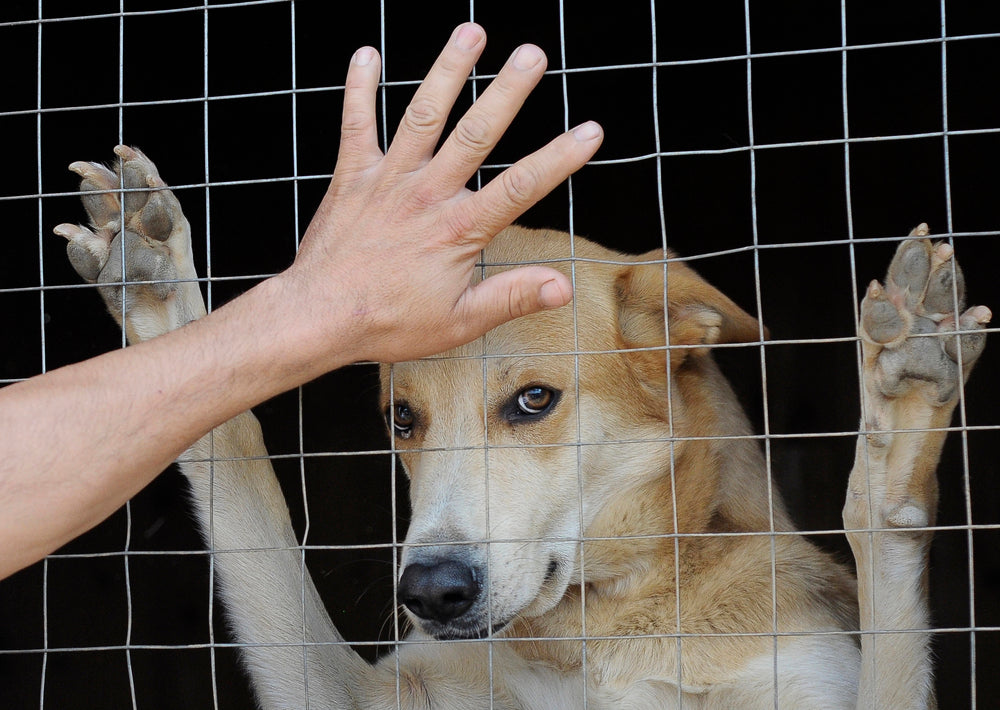6 Considerations Before Adopting an Adult Dog

6 Considerations Before Adopting an Adult Dog
Adopting an adult dog can be one of the most rewarding experiences for anyone looking to expand their family. Dogs provide unconditional love and companionship, and adopting an adult dog can be exceptionally fulfilling as it gives them a second chance at finding a forever home. Unlike puppies, however, adult dogs come with their own unique set of challenges and needs. Before taking the leap and becoming a dog parent, it’s essential to consider several factors to ensure you’re ready for the responsibility and commitment of caring for a furry friend.
Energy Level
One of the first things to consider when adopting an adult dog is its energy level. Some dogs are naturally more active and require more exercise, while others are content with a few short daily walks. When considering energy level, choosing a dog that can adapt to your lifestyle is important. If you’re active and enjoy long hikes and outdoor adventures, a high-energy dog might be an excellent fit for you. However, a calmer dog may be a better match if you prefer more low-key activities. All dogs need regular exercise and play, but elderly dogs typically have lower energy, making them perfect pups for calmer households.
It’s also important to consider how much time you can devote to exercise and playtime with your new companion. Dogs are social animals that require mental stimulation and physical activity to stay healthy and happy. If you cannot provide enough exercise and playtime, your dog may become restless and engage in destructive behavior.
Size
Another factor when adopting an adult dog is its size. Small dogs are often easier to manage and better suited for apartment living, larger dogs can make great companions for active individuals or families. Larger dogs require more space and exercise. So be sure you’re prepared to meet those needs.
If you’re adopting a large dog, consider the space you have available inside and outside. Large dogs need plenty of room to stretch and play. A small apartment might not be the best fit. Larger dogs often require more expensive food, toys, and medical care. If you can make space for your new pet and maintain a highly active lifestyle, a large dog can find happiness in any type of home.
Temperament
Temperament is an important consideration when adopting an adult dog. Some dogs are naturally more anxious or aggressive. Others are more laid back and easygoing. Choosing a dog whose temperament matches your lifestyle and personality. Adopting an adult dog from a shelter, you don’t always know what they have experienced in the past. What different triggers they may have for anxiety or fear?
Taking your time to get to know a dog’s temperament and behaviors is essential for creating a comfortable home for them. If you prefer quiet evenings, a dog with social anxiety may be a better fit. They will likely bond with you and prefer to be with you always. A dog with high energy who may be untrained will likely need patience and time to work with them and keep them active.
When meeting potential dogs, pay attention to their body language and behavior. Look for signs of fear, aggression, or anxiety, such as growling, barking, or cowering. If you have children or other pets in the home, choosing a dog with a friendly and social temperament is important. Always take precautions when introducing new dogs to your family and other pets. Take things slowly, and pay attention to your dog’s behaviors to understand their temperament. When they may need a break in the kennel or another safe space.
Training
When adopting an adult dog, it’s essential to consider their training needs. Some dogs may come with a lot of training and socialization, while others may require more work. It’s important to be honest with yourself about your training abilities and to choose a dog whose needs match your experience level. Dogs thrive on routine and consistency, so it’s essential to establish clear rules and boundaries from the beginning. Consider enrolling your new dog in obedience training classes to help them learn basic commands and socialization skills. Additionally, be prepared to invest time and patience in training, especially if your new dog has behavioral issues. They say you can’t teach an old dog new tricks- but you totally can! All you need is patients and some delicious dog treats and you and your fur baby are on your way to better behavior and a stronger bond.
Lifestyle
Your lifestyle is also an important consideration when adopting an adult dog. Do you work long hours or travel frequently? If so, consider the dog’s ability to adapt to your schedule. Additionally, if you have young children or other pets in the home, choosing a dog that can coexist peacefully with them is important.
Consider your daily routine, schedule, and ability to provide for your new dog’s needs. For example, if you work long hours outside the home, you may need to hire a dog walker or invest in toys to keep the dog busy while at work. If you travel frequently, you must make arrangements for your dog’s care while you’re away. It’s crucial to ensure that you can provide for your dog’s physical, emotional, and social needs before committing to adoption.
Health
Finally, it’s essential to consider the health of any dog you’re considering adopting. Some dogs may come with preexisting health conditions, while others may be at risk for specific health issues based on breed or age. It’s important to be aware of any potential health concerns and ensure you’re prepared to provide for your dog’s medical needs. Be sure to schedule a visit with a veterinarian from Vetster shortly after adopting your new dog. A vet can perform a thorough exam, check for any underlying health conditions, and provide recommendations for preventative care. Additionally, it’s essential to keep up with routine vaccinations, flea and tick prevention, and regular checkups to ensure your dog stays healthy and happy.
Adopt Today!
Adopting an adult dog can be a wonderful and rewarding experience, but it’s essential to consider several factors before making the commitment. From energy level and size to temperament and health, there are many important considerations when choosing a new furry friend. By taking the time to consider your lifestyle and needs, as well as those of your potential new companion, you can make a well-informed decision and enjoy a lifetime of love and companionship with your new furry friend.
Previous article

Next article

Related posts
View all-

What Can You Use Instead of Cat Litter?
Traditional cat litter is convenient, but it’s not the only option. Many cat owners look for alternatives to reduce waste, save money, or avoid chemicals found in clay-based kitty litter. Some options offer better odor control, while others are more eco-friendly or gentler on a cat’s paws.
Read Article -

How to Keep My Backyard Smelling Fresh
A clean backyard should smell fresh, unlike pet waste, smoke, or mold. Bad smells can linger, especially when dog poop, urine, or food scraps attract flies and bacteria. If your yard has a foul odor, it's time to take action. The first step is cleaning up pet feces, trash, or rotting food. A garden hose can wash away dirt and urine from artificial turf, patios, and decks. To neutralize odor, Use baking soda, white vinegar, and essential oils.
Read Article -

What Supplies Do First-Time Cat Owners Need?
Bringing home a new cat is exciting, but making them feel safe and comfortable takes more than love. First-time cat owners must prepare with the right supplies to ensure a smooth transition. From a litter box to cat food and a warm bed, having the basics ready can help your new kitty settle in faster. This guide covers everything a new cat owner needs to make their new pet feel at home.
Read Article



